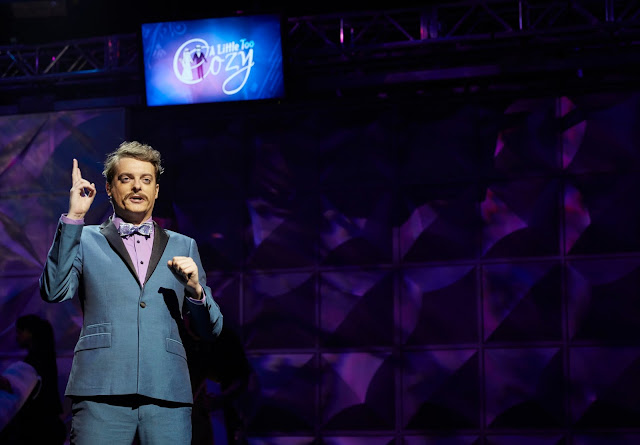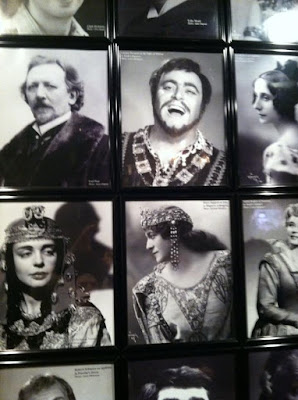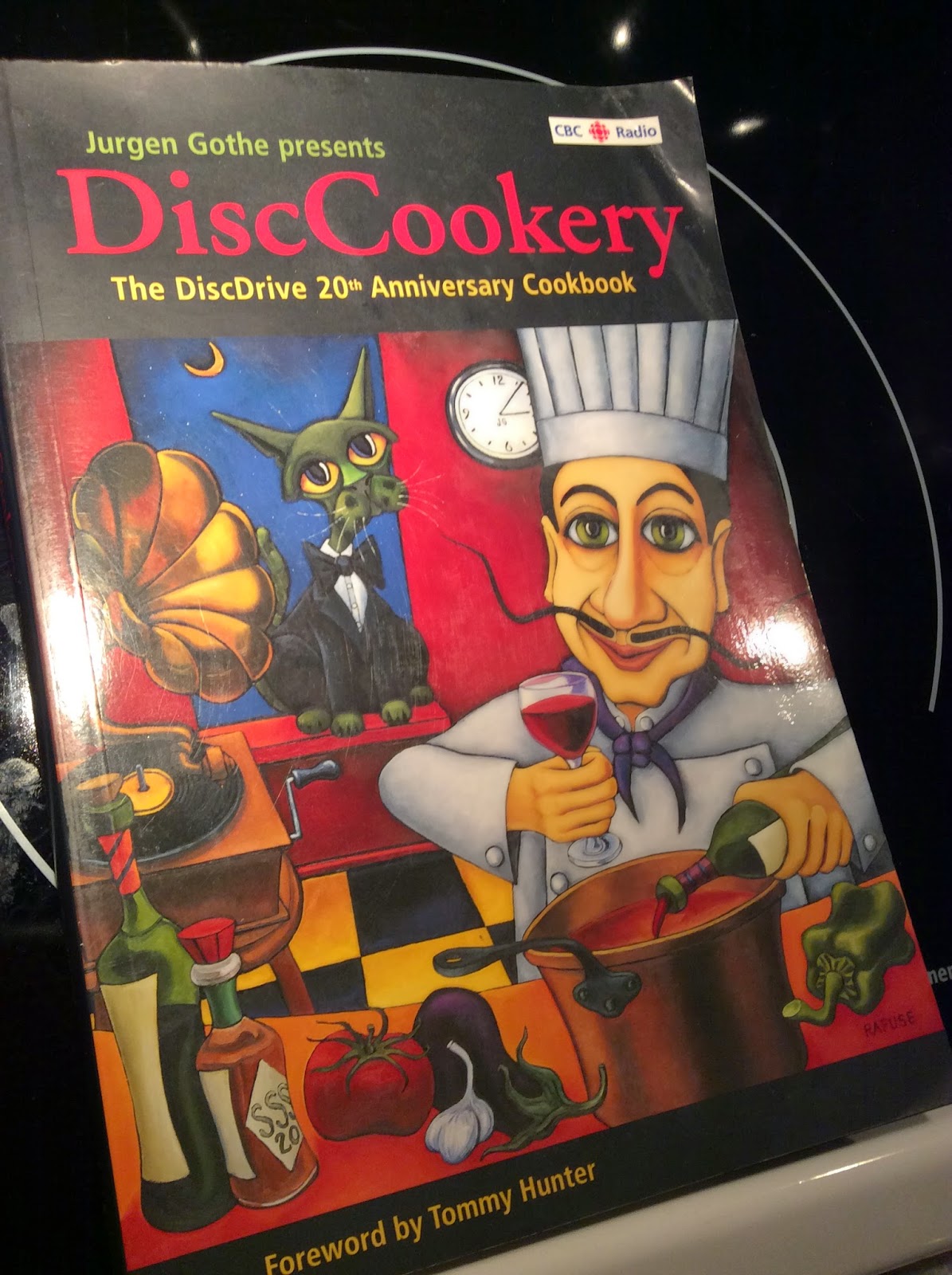 |
| Photo by Darryl Block |
Attending and writing about opera on a regular basis, it becomes all too easy to take space for granted. The setting becomes almost secondary: the vast space of an auditorium, the plush nape of seats, the hushed, reverential silence during a performance. If you’re used to going to the opera, these are elements you don’t consider too deeply, if at all.
And yet, Against the Grain wants you to think, and feel, and reassess — and to approach opera in a whole new way. The Toronto-based independent company has built an acclaimed reputation on producing opera in unusual spaces; La Boheme took place in a bar, Don Giovanni was staged in an old theatre set up as a wedding reception, and now, Cosi fan tutte takes place in a television studio. Why should this matter? Well, for those of you who may never consider going to the opera, who find its formalities daunting, who feel it has “nothing for them,” AtG aims to make you re-think.
For opera fans like me, entering Studio 42 at the Canadian Broadcasting Company’s so-called “mothership” building in Toronto for A Little Too Cozy (AtG’s updated title for Mozart’s 1790 opera) was a strange if exhilarating experience — there’s a thrill of the new combined with a slight anxiety over gimmickry, and how much the old will be incorporated without being arch. While many directors approach operatic works with an attitude approaching holiness, some new productions are also occasionally done with an art-for-capital-A-art’s-sake approach. There’s still a widely held perception (one not completely incorrect) that curiosity, mischief and whimsy are missing in the opera world; Joel Ivany (who is AtG’s Artistic Director) keeps the proper reverence for the music (as he has in all his past works) but loses the poe-faced seriousness which opera neophytes might perceive comes with the territory, instead injecting a playfulness into the proceedings that is entirely fresh and creative.
 |
| Photo by Darryl Block |
A Little Too Cozy is presented as a reality TV dating series, with each of the work’s characters as contestants vying to win love, and, it would seem, a measure of fame and validation. Felicity (soprano Shantelle Przybylo), Fernando (tenor Aaron Sheppard), Dora (mezzo soprano Rihab Chaieb) and Elmo (baritone Clarence Frazer) perform with phones in-hand, delivering punchy, swear-word-laden songs dressed in swishy club clobber, with sleazy Donald L. Fonzo (Cairan Ryan) hosting the proceedings and randy Despina handing the show’s talent relations. The latter two characters are, in the Mozart original, somewhat “controllers” of the situation, and the adaptation of them here, with more than a frisson of underlying sexual tension extant, makes perfect, zesty sense. What also makes this transposition work for the opera crowd is Ivany’s keen awareness of the source material being somewhat… silly, shall we say. In using a popular, mainstream medium to both mock and milk it at once, Ivany creates a foundation that is at once satisfying to opera regulars and enlivening to newbies.
After all, Cosi fan tutte (which translates roughly as “women are like that”) is not exactly what I’d call a work of great narrative genius; some of us (myself included) find the plot (which revolves around couples testing one another’s affections) rather unsatisfying, if not entirely asinine. But, by using a recognizable cultural outlet that has gained particular traction in the last decade-plus, Ivany betrays a deep awareness of both the power of media and the power of music, and marries them in a way that is entirely beguiling and extremely familiar. A Little Too Cozy is smart and fun and modern — it’s also very much opera. More fully than in past productions, Ivany and the AtG team here heartily embraced old and new, forging a sexy, sassy mix that will (and does) appeal to the social media set.
And so it was, the audience was reminded of related hashtags (#TeamDora, etc) and encouraged to use cell phones during the production. The immersive taping experience was deepened with “commercial” breaks, which allowed Ivany’s adapted libretto the opportunity to cleverly utilize and explore the re-imagined recitatives and arias (translated into English and matched to the proceedings) that provided further characterization and insight. It would be merely clever if it wasn’t also involving, entertaining, and deeply respectful to its source material.
 |
| Photo by Darryl Block |
Perhaps AtG’s next project should be called, “So, You Think You Hate Opera” — I’d bet by the end of the night a few hearts and minds would be changed. Never mind the plush seats, here’s a beer and Twitter — sit back and enjoy. Opera can, and should be, for everyone.






